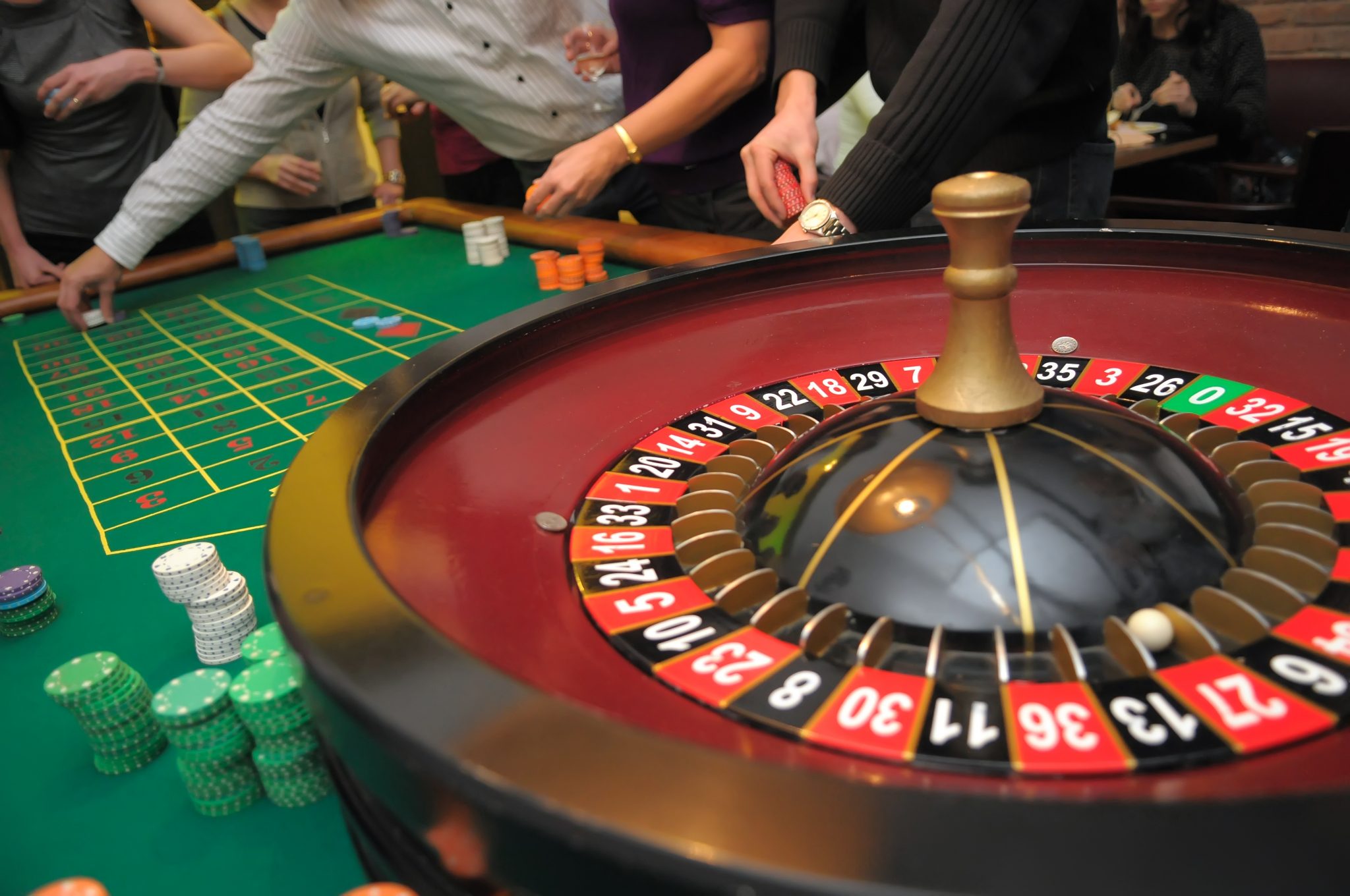Introduction
How Casinos Are Rigged: Rigging a casino is illegal and unethical, and licensed casinos operate under strict regulations to ensure fair play and maintain the integrity of the gambling industry.
However, the concept of how casinos are rigged has been a topic of intrigue and speculation over the years. There have been instances in the past where certain underground or unregulated gambling establishments employed dishonest practices to gain an unfair advantage over players. It is crucial to distinguish between these illegal operations and the legitimate, regulated casinos that abide by the law.
This article aims to shed light on historical examples of casino rigging and the methods that some disreputable establishments have used to cheat players. It is essential to understand that such practices are not representative of the broader casino industry and that legal casinos are subject to rigorous oversight to ensure fairness and transparency.
By exploring the historical context of casino rigging, readers can gain insights into the measures taken by the gaming industry to protect players and maintain the credibility and reputation of licensed casinos.

How are casinos rigged?
Most casino games aren’t rigged in the sense that they’re not designed to cheat you. However, they’re “rigged” in another way, and casinos admit it openly. Every single game gives the house a mathematical advantage known as the house edge. This ensures that come what may, the house always wins.
However, historically, there have been instances of illegal and unscrupulous practices in some underground or unregulated gambling establishments. Rigging a casino may involve various dishonest methods to give the house an unfair advantage, resulting in players being cheated out of their money.
Some methods used for casino rigging in the past have included:
1. Rigged Games: Manipulating the outcome of casino games, such as rigged slot machines or biased roulette wheels, to ensure players lose more often than they should statistically.
2. Marked Cards: Using marked cards that allow dealers or house players to know the value of the cards in advance, giving them an edge in card games.
3. Shuffling Techniques: Employing deceptive shuffling techniques in card games to manipulate the distribution of cards and control the outcomes.
4. Employee Collusion: Casino staff colluding with each other or players to manipulate game results in favor of the house.
It is crucial to note that legal and regulated casinos operate under strict oversight, using advanced technology and security measures to prevent any form of rigging. Reputable casinos are subject to regular audits to ensure fairness, and players are encouraged to gamble responsibly in a safe and transparent environment.
How do casinos set odds?
Sportsbooks typically have a head oddsmaker who sets the odds and lines for games and events. This oddsmaker relies on sources such as computer algorithms, power rankings and outside consultants to set precise lines.
Casinos set odds using a combination of statistical analysis, mathematical calculations, and business strategies to ensure they maintain a profit while still offering attractive payouts to players. The odds are carefully calibrated to give the casino a slight advantage, known as the “house edge,” which ensures that over time, the casino will make more money than it pays out to players.
The process of setting odds involves several steps:
1. Probability Analysis: Casinos analyze the probabilities of different outcomes in each game. For example, in a game of roulette, they calculate the odds of the ball landing on each number or color.
2. House Edge Determination: Once the probabilities are known, the casino determines the ideal house edge for each game. The house edge is the percentage of each bet that the casino expects to keep as profit over time.
3. Payout Calculation: Based on the desired house edge, the casino calculates the payouts for each bet to ensure that the odds are slightly in favor of the house.
4. Game Rules and Variations: The rules and variations of each game can also impact the odds. For instance, in blackjack, the number of decks used and whether the dealer hits or stands on certain hands can influence the house edge.
5. Competition and Market Analysis: Casinos also consider their competition and the overall market conditions when setting odds. They aim to offer competitive payouts that attract players while still ensuring profitability.
It’s important to remember that the odds are set in such a way that individual players can still win and have enjoyable experiences. However, over the long run, the casino’s advantage ensures their financial success. Players should always gamble responsibly and be aware of the odds before playing any casino game.
Are online casinos better than real casinos?
Online casinos offer better bonuses and rewards than land-based operators since they have fewer overheads. When it comes to gambling sites, Casino Bros offers players trustworthy reviews and useful advice, so make sure to check their articles on the best online places with amazing incentives!
Whether online casinos are better than real casinos depends on individual preferences and priorities. Both options offer distinct advantages and drawbacks, catering to different player needs.
Online Casinos:
- Convenience: Online casinos provide unparalleled convenience, allowing players to access a wide range of games from the comfort of their homes or on the go through mobile devices.
- Variety: Online platforms offer a vast selection of games, including slots, table games, live dealer options, and more, often with a wider range of betting options.
- Bonuses and Promotions: Online casinos frequently offer enticing bonuses, such as welcome packages, free spins, and loyalty rewards, providing added value to players.
- Privacy and Anonymity: Playing online allows for more privacy, as players can maintain anonymity and avoid the social interactions common in brick-and-mortar casinos.
- Global Access: Online casinos are accessible from almost anywhere, allowing players to participate from different countries without the need for travel.
Real Casinos:
- Atmosphere and Experience: Brick-and-mortar casinos offer a unique and immersive gaming experience with vibrant ambiance, live interactions, and entertainment options.
- Social Interaction: Real casinos provide a social environment where players can engage with others and share the excitement of the games.
- Live Dealer Games: While online casinos offer live dealer options, some players prefer the authenticity of playing with real dealers in person.
- Instant Payouts: In physical casinos, players receive immediate payouts after winning, while online withdrawals may take time due to processing.
Ultimately, the choice between online and real casinos boils down to personal preferences, accessibility, and the type of gaming experience one seeks. Both options present exciting opportunities for entertainment and potential wins, ensuring there is something for every type of player.
Do casinos rig their machines?
As a casino worker, one of the questions that you’ll need to resign yourself to hearing every day is: “Are these slots rigged?” And the answer is, “Well, yes, but actually no.” All slot machines will have a house advantage. This number is normally best defined as return to player (RTP).
Reputable and licensed casinos do not rig their machines. Rigging casino machines is illegal, unethical, and goes against the strict regulations and oversight that licensed casinos must adhere to. Rigging machines would not only lead to severe legal consequences but also tarnish the reputation of the casino, resulting in the loss of trust from players and damaging its business.
Modern casino machines, such as slot machines and electronic table games, are designed and manufactured by reputable gaming companies with rigorous testing and certification processes. These machines use random number generators (RNGs) to ensure the fairness of the game outcomes. RNGs produce entirely random results for each spin or game, preventing any predictability or manipulation of the results.
Casino operators are also subject to regular audits and inspections by gaming authorities to verify the integrity and fairness of their machines. Rigging casino machines would be immediately detected during these audits, leading to severe consequences for the casino.
It is crucial for players to choose licensed and regulated casinos to ensure a fair and secure gaming experience. Reputable casinos operate transparently, guaranteeing that their machines offer fair and random outcomes, providing players with a genuine chance to win and enjoy their gambling activities responsibly.
How often do casino machines hit?
Slot Machine results are random, so it’s possible for the jackpot combination to show up two spins in a row, or not at all for 20,000, 50,000, 100,000 or even more spins. But as a long-term average, the slots jackpots in our hypothetical casino show up an average of once per 10,000 spins.
The frequency at which casino machines hit, particularly slot machines, is determined by the machine’s programming and the use of random number generators (RNGs). RNGs are algorithms that ensure the randomness and unpredictability of outcomes in casino games.
For slot machines, the concept of “hitting” refers to a winning combination or payout. The frequency at which slot machines hit can vary significantly depending on the specific game, its design, and the casino’s chosen settings. Some slot machines are programmed to have a higher hit frequency, meaning they offer more frequent small wins to players. Others may have a lower hit frequency but offer larger payouts when winning combinations do occur.
The hit frequency is typically expressed as a percentage, representing the likelihood of a winning outcome on each spin. For example, a slot machine with a hit frequency of 20% means that approximately one out of every five spins will result in a win.
It is essential to understand that hit frequency does not directly correlate to a player’s chances of winning or the machine’s payout percentage. Slot machines are designed to operate with a specific payout percentage over the long term, which is known as the return to player (RTP) rate. The RTP, along with the hit frequency, influences the overall experience for players and the casino’s profitability.
Ultimately, the hit frequency and payouts of casino machines are determined by the game’s design and the casino’s chosen settings, ensuring a blend of entertainment and chances for players to experience winning moments.

What methods have been historically used to rig casinos and gain an unfair advantage over players?
Here are some additional methods historically used to rig casinos and gain an unfair advantage:
False Dice or Loaded Dice: In dice games, using dice with altered weight distribution or magnetic properties to manipulate the outcome and favor specific numbers.
Wheel Bias: Exploiting mechanical flaws or imbalances in roulette wheels to predict where the ball is more likely to land.
Edge Sorting: A technique where players identify subtle differences in the patterns on the back of playing cards to gain an advantage in card games.
Coolers: Introducing pre-arranged decks of cards or shoe setups to favor the house or specific players in card games.
Inside Jobs: Collusion between casino employees and players to assist in cheating or manipulate game outcomes.
It is crucial to reiterate that reputable and licensed casinos today maintain strict measures and adhere to industry regulations to ensure fair play and transparency. The gambling industry has made significant advancements in technology and security to prevent any form of rigging and protect players from unfair practices. Modern casinos use sophisticated surveillance systems, regular audits, and independent testing to guarantee the integrity and trustworthiness of their gaming operations. Players can have confidence in enjoying a safe and equitable gambling experience at licensed and regulated casinos.
How do reputable and licensed casinos ensure fairness and prevent rigging in their operations?
Reputable and licensed casinos prioritize fairness and the protection of players, implementing various measures to prevent rigging and maintain a trustworthy gaming environment. Here are some key ways they ensure fairness:
1. Regulatory Oversight: Licensed casinos are subject to strict regulations and oversight by gaming authorities and regulatory bodies. These authorities conduct regular audits and inspections to ensure compliance with industry standards and fair gaming practices.
2. Random Number Generators (RNGs): Modern casinos use advanced technology, including RNGs, to generate random and unpredictable outcomes in games like slots, ensuring that no manipulation or rigging can occur.
3. Game Testing and Certification: Reputable casinos have their games tested and certified by independent testing laboratories to verify their fairness and compliance with industry standards. Certifications from these labs provide assurance to players that the games are unbiased.
4. Transparent Payout Rates: Legitimate casinos publish their payout rates (return to player percentage) for different games, allowing players to make informed decisions about their gaming choices.
5. Responsible Gambling Initiatives: Licensed casinos promote responsible gambling practices and provide resources for players who may need assistance with gambling-related issues.
What measures are taken by gaming authorities to regulate and oversee casinos, ensuring transparency and protecting players from rigged practices?
Gaming authorities play a crucial role in regulating and overseeing casinos to ensure transparency and protect players from rigged practices. These authorities are government agencies or independent organizations responsible for licensing and monitoring casinos and enforcing gaming laws. Here are some key measures they take:
1. Licensing and Background Checks: Gaming authorities thoroughly review and vet casino operators before granting licenses. This process includes background checks on the company’s financial stability, integrity, and previous compliance with gaming regulations.
2. Regular Audits and Inspections: Gaming authorities conduct regular audits and inspections of licensed casinos to verify compliance with regulations. These audits assess the fairness of games, the accuracy of payout rates, and the security of player funds.
3. Game Testing and Certification: Casinos must submit their games for testing and certification by independent third-party testing laboratories. These labs evaluate the random number generators (RNGs) and game mechanics to ensure fair play.
4. Enforcement of Gaming Laws: Gaming authorities have the power to investigate any suspected fraudulent or rigged practices and take appropriate legal action against non-compliant casinos. Penalties for violations can range from fines to license revocation.
5. Player Complaint Resolution: Gaming authorities provide channels for players to submit complaints against casinos. They investigate these complaints and take necessary actions to resolve issues and protect players’ interests.

Conclusion
While there have been historical instances of casinos being rigged, it is essential to recognize that reputable and licensed casinos in today’s regulated gambling industry are not rigged. Rigging a casino is illegal and unethical, and legitimate casinos operate under strict oversight and adhere to regulations that ensure fair play.
The concept of casino rigging typically refers to dishonest practices employed by certain unscrupulous establishments in the past to gain an unfair advantage over players. Rigged casinos may have used methods such as manipulating game outcomes, using marked cards, employing deceptive shuffling techniques, or colluding with casino staff to cheat players out of their money.
However, the vast majority of modern, licensed casinos prioritize integrity and transparency. They utilize advanced technology and random number generators (RNGs) to ensure the unpredictability and fairness of game outcomes. Licensed casinos are subject to regular audits and inspections by gaming authorities to verify their compliance with regulations and to protect players from any potential rigging.
Players seeking a safe and trustworthy gambling experience should choose licensed and regulated casinos. These establishments are committed to providing a fair gaming environment, where players can enjoy their favorite casino games with the assurance that they are not being cheated.
While the historical notion of casino rigging raises concerns, it is essential to recognize the progress made in the gambling industry to safeguard players and maintain the credibility and reputation of legitimate casinos in today’s regulated and responsible gaming landscape.










